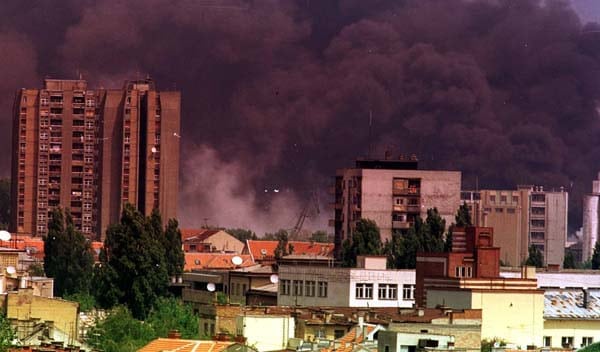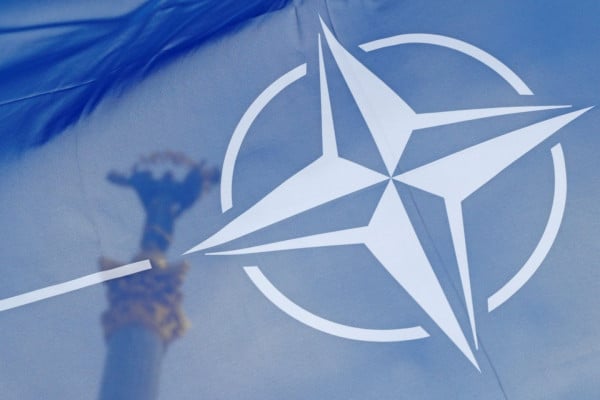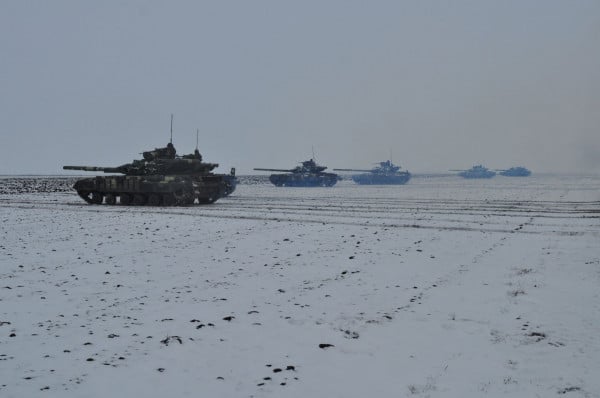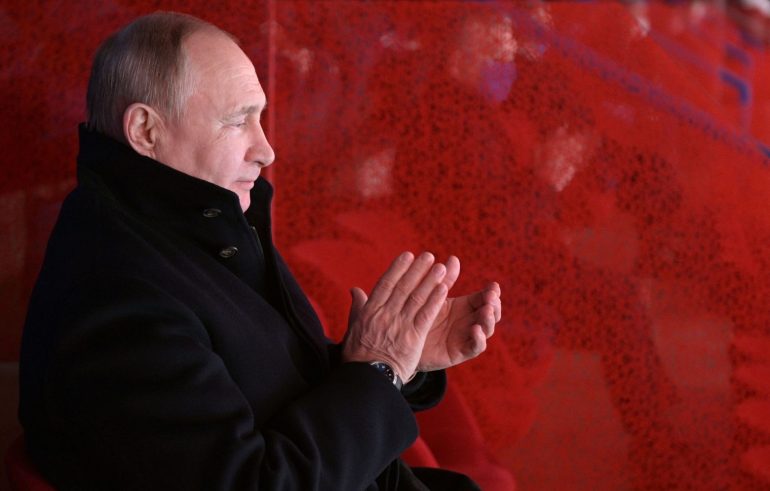Russia is trying to restore a concept that has been around for decades in relation to collective security in Europe
When the Final Act of the Conference on Security and Co-operation in Europe was signed in 1975 in Helsinki, Finland, the world was quite different, at least in some respects.
It was a world formally divided into rival "camps", representing different and competing worldviews and clearly defining each other as "adversaries" and possessing nuclear arsenals capable of securing "Mutually Guaranteed Destruction" and in Europe which meant that even in the event of a "limited theater" war again the price for Europe would be incalculable.
However, the basic principles formulated then, in a period of "recession" of competition (which will be interrupted later in the Reagan era when the US will promote the plan of "Star Wars" and the logic that the USSR is the "Empire of Evil" ), Will remain in the forefront and in the period immediately following the "Fall of the Wall" in 1989 and discussions on a new collaborative security architecture in Europe. After all, on the basis of the principles of the Final Act, the Organization for Security and Co-operation in Europe (OSCE) will be formed.
The "indivisibility of security" in Europe
One of the principles contained in the Helsinki Final Act is that which refers to the principle of indivisible security, since in the preamble the signatory states recognize "the indivisibility of security in Europe as well as their common interest in developing cooperation throughout Europe and each other and stating their intention to make similar efforts ".
In fact, it was one of the three interconnected concepts of security in Europe. The other two were overall security (which included the civil-military, economic, environmental and human dimensions) and the cooperative dimension.
The principle of indivisibility of security, as developed in a period of competitive blocs and interpreted as even greater pressure for international cooperation despite divisions. It was the principle that the security of the block could not be a matter of just one block and required cooperation between them.
When two competing blocs in Europe ceased to exist, schematically in the 1990s, the principle of indivisible security was interpreted as an attempt to form purely European security structures that transcended previous blocs. It was at that time that great emphasis was placed on the OSCE's ability to be such a collective security body.
Of course, everything was based then on the fact that the USSR had disintegrated, there was no longer a "Warsaw Pact" and the US was the only superpower, but it still spoke a rhetoric of globalization and "multilateral cooperation".
However, the OSCE could not be the collective security mechanism in Europe. The Yugoslav tragedy, with the bloody civil war sparked by the choice of the federal states to become independent states and the ensuing explosion of nationalism, came to emphasize that the end of the Cold War did not necessarily mean a more treaty.
After all, the return of NATO with the 1999 bombings signaled that we had not yet gone beyond the previous blocs.

The "Istanbul Declaration"
However, the principle of "indivisible security" remained active as a basic principle and was referred to in texts and declarations.
The "Istanbul Declaration" in November 1999, a product of the OSCE Summit on November 16-19 (for the record, Bill Clinton came to Athens shortly afterwards for his visit, which was marked by very large and episodic protests against him), it also included explicit references to the principle of "indivisible security".
NATO enlargement and "indivisible security"
However, the principle of "indivisible security" began to be challenged - or perceived in a new way - to the extent that NATO expansion was systematically promoted. Although the United States initially gave assurances to the USSR and Russia in 1989-1991, but also to European leaders that they would not seek NATO expansion, this gradually changed and enlargement became a key NATO principle.
This had to do with how the US was gradually turning to a logic of ratifying its own primacy, something that began to become particularly pronounced throughout the period after 2001, the "war on terror" and, of course, after the war. in Iraq in 2003 and the logic of "willing alliances".
Against this background, the concept of "indivisible security" began to be interpreted more as indivisible security within NATO, rather than as a principle defining mandatory cooperation and mutual respect with forces outside NATO, as was originally intended. After all, since 1991 NATO has insisted on the principle of "indivisible security for all its members", as stated in the 1991 declaration on the new strategic concept.
However, the reference to the original concept of "indivisible security" was still maintained for a while. For example, in the declaration of the OSCE Astana Summit, there is a reference to the reaffirmation of the concept of "comprehensive, cooperative, equal and indivisible security" in Europe. 
Why is Russia reinstating the concept now?
It is clear that the concept of indivisible security in Europe refers to a kind of collective security architecture based on the assumption that different countries and different coalitions work together, trying to respect each other and avoid moves that may cause tension.
This is an architecture that was widely discussed during the Cold War, precisely because it was considered to bring about the desired "recession" in terms of geopolitical competition and the arms race and to ensure peaceful coexistence.
Moscow is now reinstating this notion in the context of its strategic dialogue with the US and NATO, albeit through exchanges of asymptotic positions, precisely because it believes that we are in a period of similar characteristics, the so-called "New Age" period. Cold War ", starting with the Ukrainian crisis of 2014 and the reaction to the reintegration of Crimea into the Russian Federation. The Russian government has long read such moves as a "cold war" practice, such as NATO's expansion into a move that looks like the US wants a member states' "health zone" on its border with Russia, as well as the establishment anti-ballistic missiles near its borders. We remind here that anti-ballistic missile systems are considered "first hit" weapons systems, as they provide reduced retaliation from the host country.
On the other hand, for the US and several other governments, the notion has long been entrenched that NATO is not a structure that merely represents a bloc of states coexisting with other blocs, but essentially the collective security of the "West" against in anything that threatens her.

The conflict of two perceptions of collective security
It is against this background that we can see the confrontation between two perceptions of collective security.
The first considers that the world is permeated by competition and the coexistence of different political systems and different blocs of states that choose to coexist on the basis of principles such as mutual respect, compliance with rules of "zones of influence", the principle of non-intervention and " indivisible of security.
The other insists that the world relies on the essentially conflicting coexistence between "liberal democracies" and states that are "authoritarian" or "delinquent" or "asymmetric threats" from "non-state entities", something that legitimizes "liberal democracies". To take all options they deem appropriate, from expanding their military structures to armaments programs, imposing sanctions or even armed intervention in the name of legality and international law (including human rights).
How these two perceptions and their actors will coexist - or possibly collide - will undoubtedly be one of the parameters that will shape the international landscape in the coming years.
in.gr
